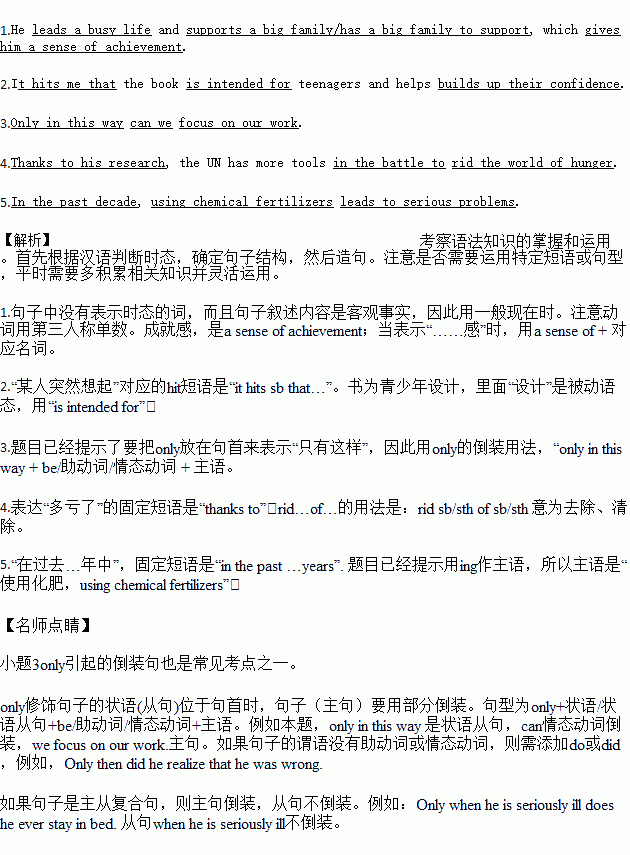题目内容
1.他过着忙碌的生活,养活一大家子的人,这一点给了他成就感。(lead a...life; support; achievement)
2.我突然想到这本书是给青少年设计的,有助于建立他们的信心。(hit; intend; build up)
3.只有这样我们才能集中注意力于我们的工作上。 (only句首;focus on)
4. 多亏了他的研究,联合国在消除世界饥饿的斗争中又多了些方法。(thanks to; rid...of; battle)
5.在过去十年中,使用化肥导致了严重的问题。(decade; ing形式做主语; fertilizer; lead to)
练习册系列答案
 优质课堂快乐成长系列答案
优质课堂快乐成长系列答案
相关题目


 uary 30 --- a day that doesn’t exist!
uary 30 --- a day that doesn’t exist! experience, going to office hours regularly, emailing questions that may be beyond the scope of class just out of your own curiosity, and reading ahead of time so you can ask good relevant questions are the best ways to give a professor a good impression. Where I’ve sat in the classroom hasn’t noticeably affected a professor’s opinion of me in the slightest.
experience, going to office hours regularly, emailing questions that may be beyond the scope of class just out of your own curiosity, and reading ahead of time so you can ask good relevant questions are the best ways to give a professor a good impression. Where I’ve sat in the classroom hasn’t noticeably affected a professor’s opinion of me in the slightest.